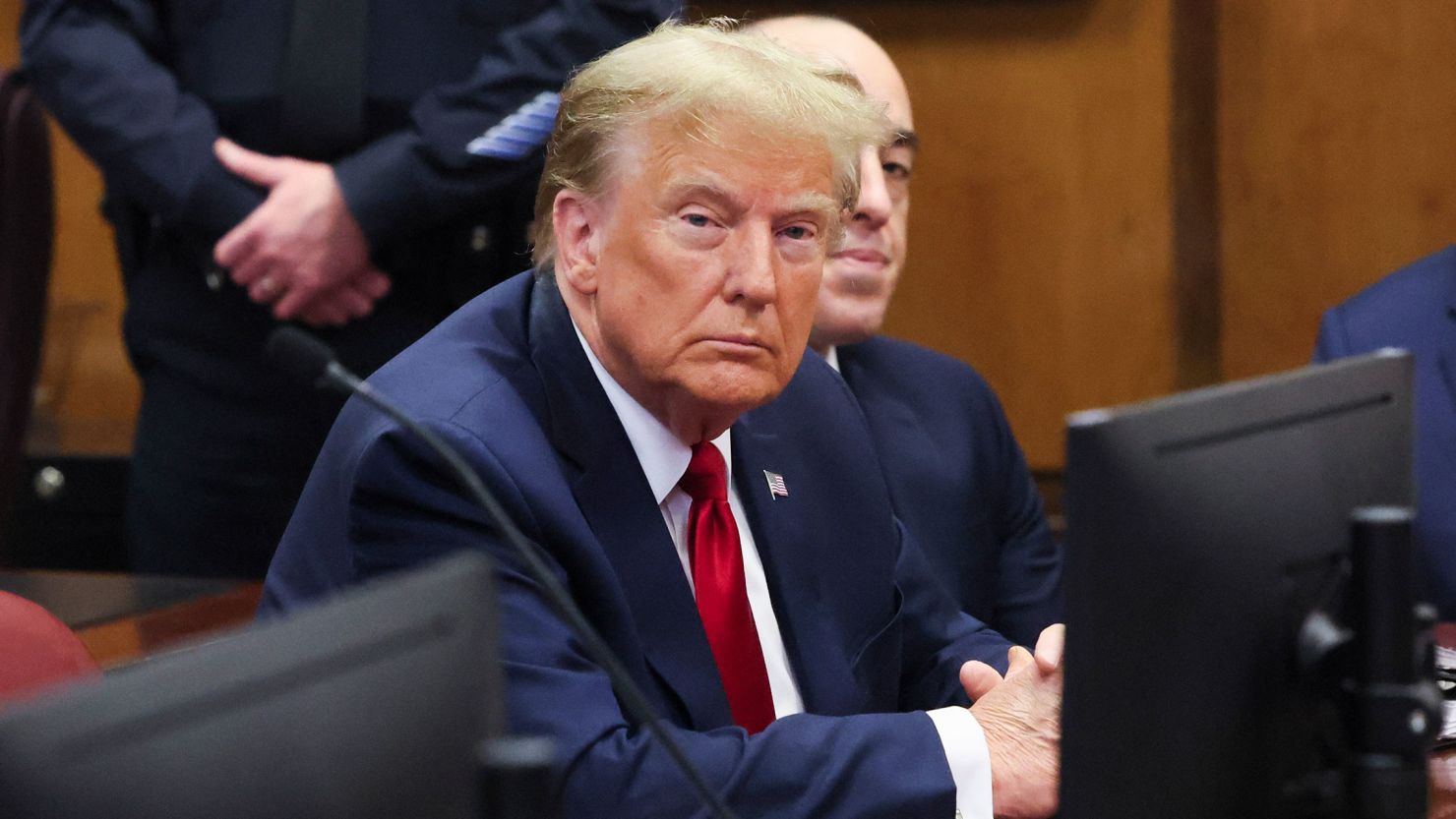Sometimes, when Donald Trump loses, he somehow seems to win as well. That may have been the case Thursday when two of the four criminal indictments against the former president appeared, at least momentarily, to turn in opposite directions.
The trial date in his New York hush money case was confirmed to be March 25. Meanwhile, Fulton County District Attorney Fani Willis, who is bringing the election subversion case in Georgia, took the stand in a misconduct hearing surrounding her personal relationship with a prosecutor on her team. Trump’s lawyers are hoping to get the Georgia case thrown out or at least delayed over Willis’ conduct.
Polling indicates that if Trump had to choose which case to go forward with at the fastest speed, he would most definitely, at this time, choose the New York case over the other ones.
Most Americans just don’t think that the New York charges are all that serious. In fact, only 32% of voters said they were very serious in a Quinnipiac University poll taken toward the end of last year.
This shouldn’t be all that surprising when you consider that everyone has long known about Trump’s supposed relationship with Stormy Daniels, which is a big part of New York prosecutor Alvin Bragg’s case. The idea that Trump would be involved in paying off an adult film star, even if illegally, probably doesn’t shock that many people.
On the other hand, the same Quinnipiac polling revealed that 54% of voters said the charges in the Georgia case over Trump’s efforts to reverse his 2020 defeat in the state were very serious. This lines up with what we know about how the American public feels more broadly. We have a lot of data from after the 2020 election when Trump refused to concede and tried to overturn his loss to Joe Biden. Voter opinion of him slid during that period.
Opinions of the two federal cases against him look a lot like that of Georgia. When it comes to Trump’s actions after the 2020 election and in the lead-up to the January 6 riot at the US Capitol, 56% said the charges were very serious. A similar 51% said the charges regarding his alleged mishandling of classified documents after leaving the White House were very serious.
Other surveys confirm Quinnipiac’s general findings. Polling from AP-NORC shows that a similar majority of Americans think Trump did something illegal when it comes to pressuring Georgia public officials over the vote count in the state.
Meanwhile, only about a third of them say Trump did something illegal when it comes to his actions around the New York hush money case. A plurality (38%) say he did something unethical, but not illegal.
Of course, even if voters think Trump did something wrong in New York doesn’t mean they wouldn’t be willing to vote for him again.
Just 30% of voters in a CNN/SSRS poll last year said that the New York charges, if true, would disqualify him from the presidency. Among voters who were at least initially undecided in a matchup between Trump and Biden, a similar 33% said the New York charges, if true, would disqualify him.
Opinions could change
Now, these numbers in the New York case could change if Trump were actually convicted and as voters pay more attention. After all, a hypothetical conviction is very different from an actual one.
But if they hold steady, it’s not hard to see how Trump could get off relatively unscathed, even if he is found guilty in New York. He might also try to use the case to his political advantage. Not only could he try to rally his base (which he has done successfully in past legal fights), but he could also try to convince those in the middle that he’s been unfairly prosecuted in a case in which many don’t think he did something illegal.
That well could be the case if the New York case finishes first, which looks most likely given that it will probably start first. Trump might try to influence public perceptions about the other cases based on how people feel about the New York one.
Because at this moment, the public sees those other cases far differently in the context of the 2024 election.
Using the Georgia election subversion case as an example, a near majority (49%) of voters in the CNN/SSRS poll said the charges in Georgia, if true, would be disqualifying for Trump and the presidency. It’s much harder to win an election when about half the voters think you should be disqualified.
Among the at least initially undecided voters in the same survey, 58% said the Georgia charges would be disqualifying, if true. In an election as tight as 2024 will be, you really don’t want to have 58% of undecided voters saying that.
Of course, the Georgia case is currently on an uncertain timeline with a lead prosecutor who may not end up being the prosecutor who brings the case to trial.
Additionally, we have to contend with the fact that we don’t know how the court proceedings in Georgia could affect opinions of the case, even if Willis remains the prosecutor leading it.
The bottom line is that no one wants to be on trial, but if Trump had to pick, he’d much rather go first with the New York case.






